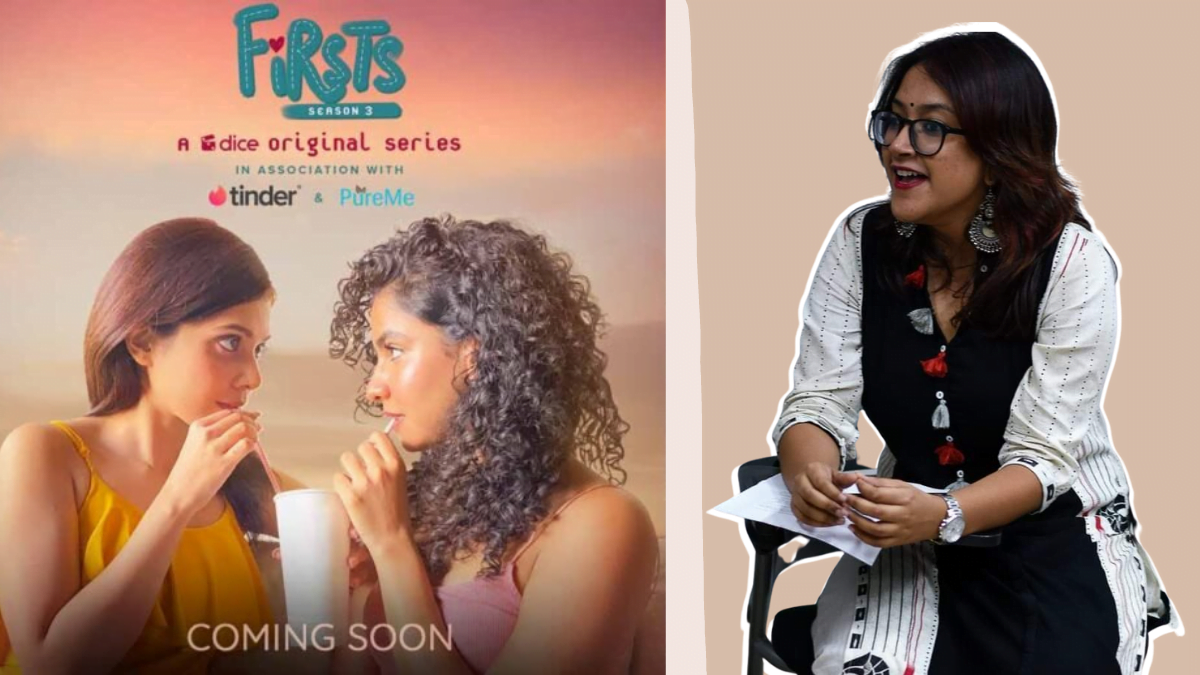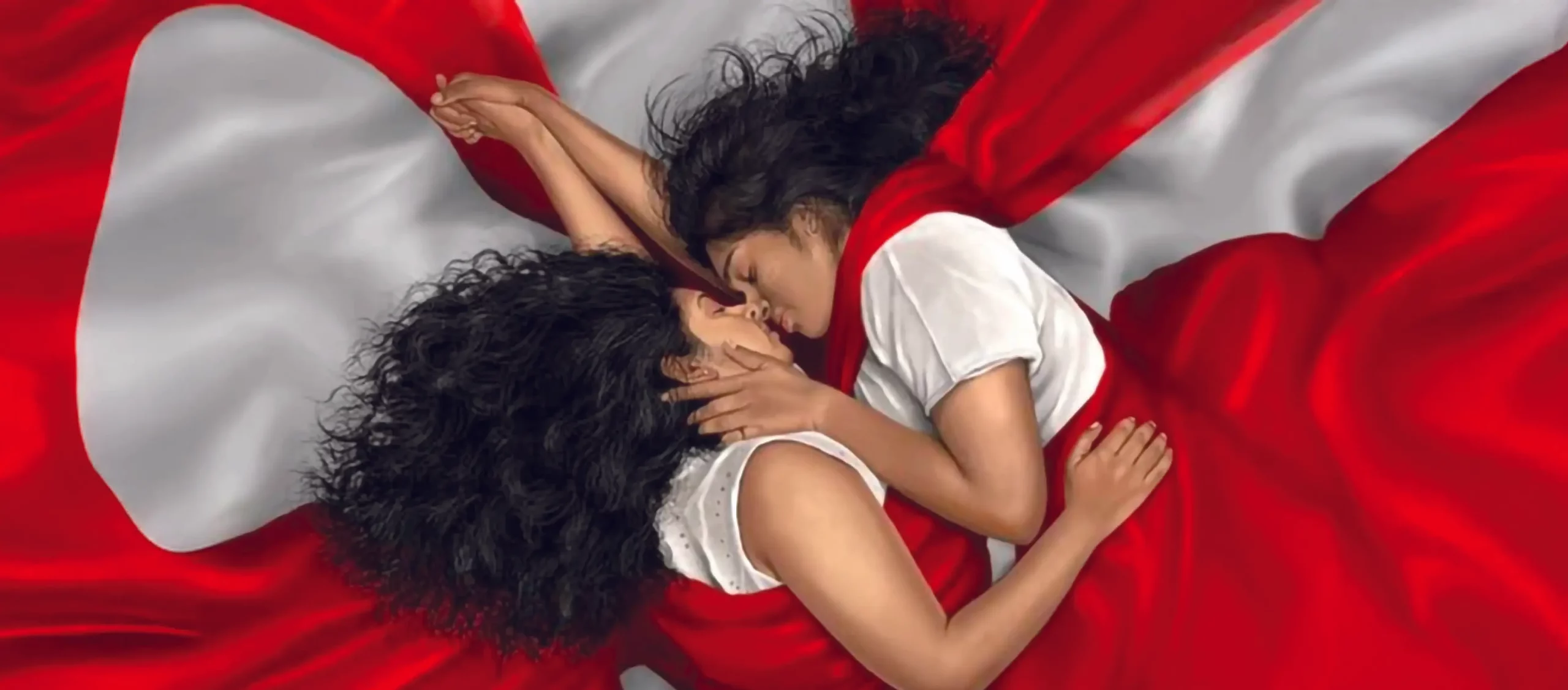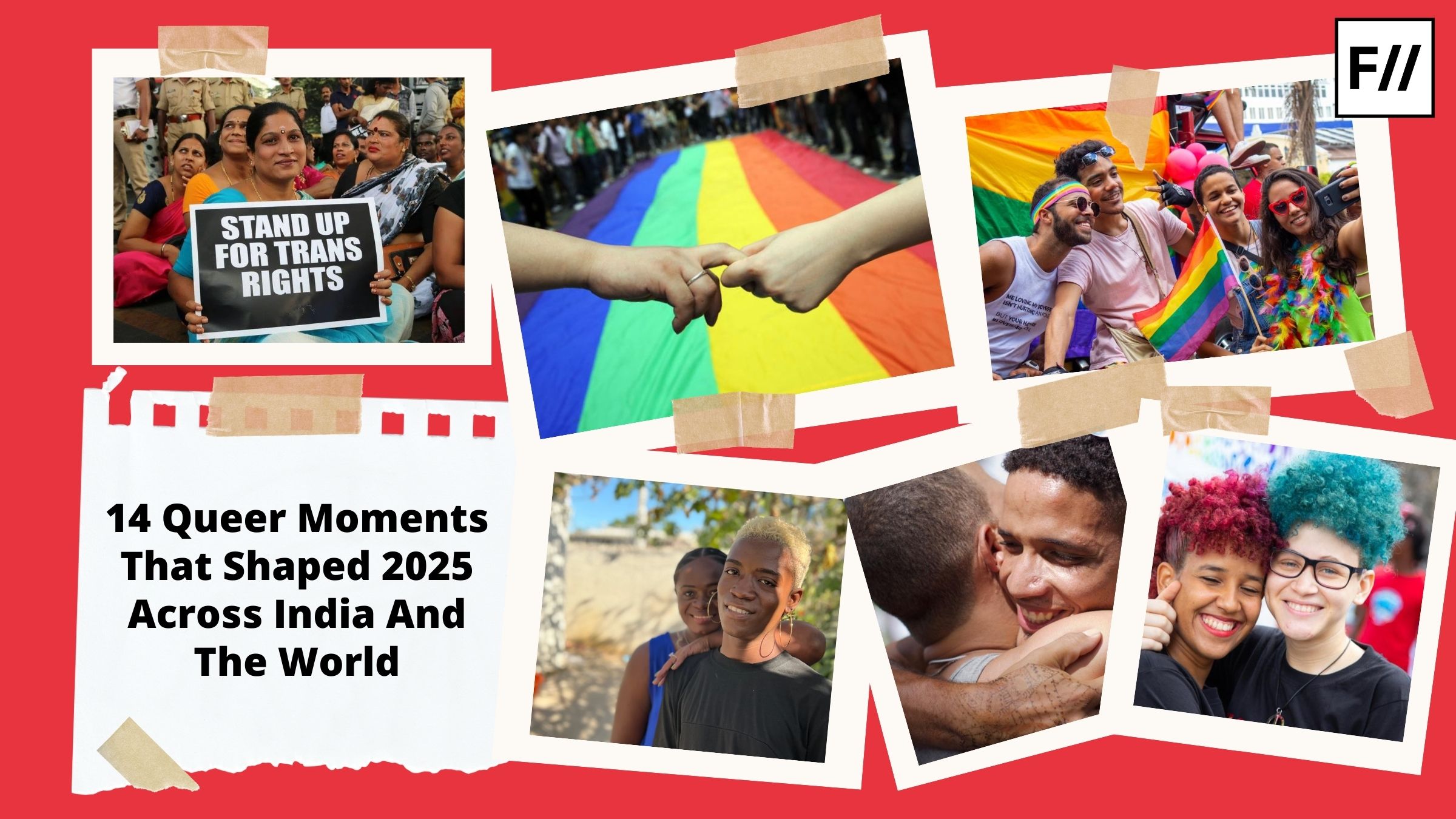Sulagna Chatterjee is a lovely ball of joy to interact with. She is also a 24-year-old Mumbai-based screenwriter, and the writer of Firsts Season 3, the queer love story currently stealing everybody’s heart. In this interview, Sulagna talks about TV, Twitter, love and more!
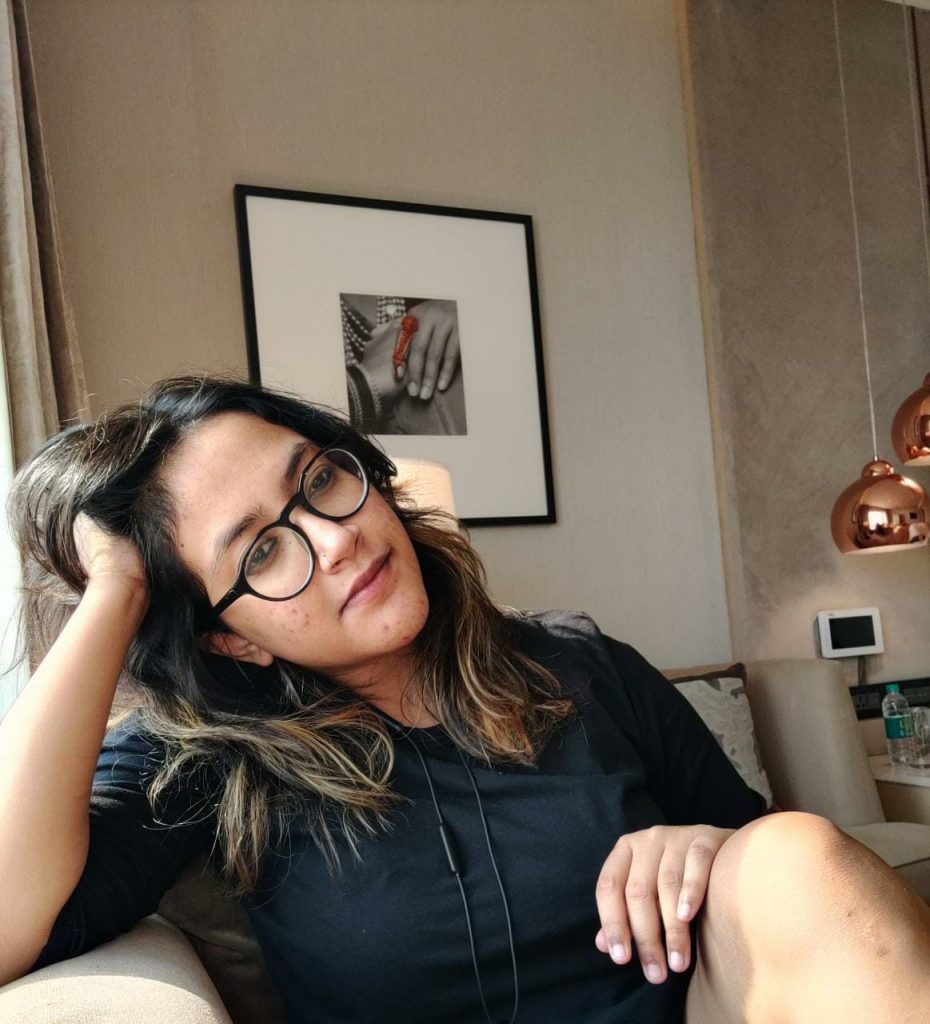
Hamsadhwani Alagarsamy: Tell us about Firsts Season 3! It’s been doing wonderfully, and I personally enjoyed it a lot—gave me butterflies. It’s also nice that it is not about queer tragedy, as a lot of content with LBTQIA+ characters tends to be so.
Sulagna Chatterjee: This show is special to me in more than one way, especially because it is my first show as an independent screenwriter. I’ve always been fond of drama and romance as a genre, and it comes very naturally to me as a writer. So, when Dice Media approached me to write the third season of Firsts, I was ecstatic. It felt like I got the best of both worlds – I was getting to write something so beautiful and that too on a topic that is so, so personal to me. I was nervous, of course. Writing snackable, relatable romance in a strict time-frame of one-minute is no easy task.
The most defining factor of successful romcoms is the fact that they leave the audience with a feeling of hope and of a “happy ever after” and that’s what I wanted to create through this show. I’ve always believed that we also deserve our cheerful, sappy, disgustingly cheeky romances (because why not?). We deserve our “I’m just a girl standing in front of a guy…” moments and we deserve stories that are a ray of sunshine amidst the dreadful reality that we’re living in. And it was with this intent that I wrote Firsts. The first two seasons, written by Pranav Tonsekar had already done quite well, and I wanted to maintain the same standard if not raise it.
The entire team at Dice Media was amazing to work with. They understood nuances and our sensibilities matched a lot. Special thanks to Riya Chhibber, the creative director on the project. We would randomly send each other voice-notes at odd hours, bouncing off ideas. She was the biggest support for me at times when battles were to be fought. Bharat Misra, my director, very beautifully executed our vision visually and Parv Dandona, our cinematographer managed to create a painting out of every frame.
My biggest challenge, however, was sticking to the time-frame without becoming too indulgent. Because the topic was so close to me, often I wanted to say TOO much but I had to constantly remind myself that if I didn’t edit it now, it would be edited later. And so, I had to make sure that every dialogue and every episode gave something worthwhile to the audience. And seeing the response now, I think we’ve succeeded. People are actually quoting the dialogues, calling them “relatable.” They’re “shipping” and “stanning” Lavanya and Ritu, and as a writer – I couldn’t have asked for a better debut. This was a miraculous project to work on.
People are actually quoting the dialogues, calling them “relatable.” They’re “shipping” and “stanning” Lavanya and Ritu, and as a writer – I couldn’t have asked for a better debut. This was a miraculous project to work on.
Hamsadhwani Alagarsamy: What is your preferred platform for story-telling, and why?
Sulagna Chatterjee: If you’d have asked me this question three years back, I’d have given you the quickest answer – television! The reason I became a writer in the first place was because of my love for TV (Yes, I’ve been dissed for my love for TV a lot!) but I had grown up watching the dramatic, cinematic content of the early 2000s that certainly hasn’t aged well. And that’s what had inspired me to become a filmmaker. But three years into the industry, I’d say – I’m a storyteller, that’s it. Whichever platform gives me the creative liberty to tell good stories, I’m up for it. Every medium has its own pros and cons, but at this point in my career, I want to try out anything and everything.
Hamsadhwani Alagarsamy: What is your opinion on the currently available catalogue of TV content? Where do you see TV going in the future?
Sulagna Chatterjee: I think OTTs have really, really given new creators a chance to tell stories that matter. Today, the ever-present line between “arthouse” content and “commercial” content is really diminishing and the audience is finally merging to some extent, I feel. Content that was once considered to be only for the urban niche is now becoming more mainstream. Stories of different demographics are being looked at, and it’s beautiful.
The consumer is asking for good content and the creators are going all out to fulfil that demand. And finally, writers are getting their due, I feel. With the ever-growing number of OTT platforms, there’s something for everyone and everything is a click away. However, I suddenly see a rise in dark, grungy, graphically violent content and somehow that doesn’t seem to work for me. The world’s dark enough, the reality of the country is horrible and when I watch content, I want to move away from reality for a bit. I really hope we have a bit more fun content coming to the screen. And by happy, I don’t mean sexist remakes of movies or needless sex-comedies with utterly garbage item songs. I mean… feel-good shows—shows that are wholesome and give you the necessary breather that you require before you go back to fighting trolls on Twitter. We need that, and maybe that’s why Firsts is being liked by the audience too. We need Michael Schurs of India, basically.
Hamsadhwani Alagarsamy: How has your identity of being a young queer woman impacted your work and its perception in the industry and by the audience? Has it been restrictive in terms of opportunities and what you are allowed to present in your work?
Sulagna Chatterjee: I think it’s too early for me to be “perceived” at all in the industry. It’s still just the beginning for me. But the one thing I often hear from friends, acquaintances or colleagues is – “You shouldn’t JUST write queer stories because you might be type-cast.” I find it hilarious, actually. I mean, I wish straight creators were told to not just write “straight” stories and write “other things” too. We might’ve had more representation in the past then, or maybe not. We’ll never know.
But the one thing I often hear from friends, acquaintances or colleagues is – “You shouldn’t JUST write queer stories because you might be type-cast.” I find it hilarious, actually. I mean, I wish straight creators were told to not just write “straight” stories and write “other things” too.
Coming to whether my sexuality has been restrictive in terms of opportunities, it really hasn’t but I also think it’s because of the cis privilege that I have. But yes, I wouldn’t want to be termed as a “queer writer”, I’d prefer to be known as a screenwriter who manages to bring nuance to every story that she writes. It’s almost similar to women in film being termed as “female directors.” That label is restrictive because it makes people look at you through only one lens – your gender or your sexuality. But yes, I want to normalise conversations around sexuality and liberation for sure, through my work. I think that is one of my main purposes as a writer – to make people think, to make them question their ways of looking at things and to make the world a better place, one piece of content at a time.
Hamsadhwani Alagarsamy: Was there a screenwriter in particular or even a specific film/book/TV show that has influenced or inspired you?
Sulagna Chatterjee: I owe my passion for writing to two people, Juhi Chaturvedi and Shubhra Chatterji. Talking about Juhi, her writing style makes you simply fall in love with the world that her characters are set in. They feel so real, they feel like you’ve seen them somewhere, maybe even hung out with them. The amount of effort that goes into the layering of her characters makes them stick with you months after you’ve seen the film. And thankfully, I have the good fortune of knowing her in person. She once told me “Keep writing. Words will not only bring out the best in you but define you as a person,” and that has stuck with me ever since.
But the one person I always turn to and consider as a mentor is Shubhra Chatterji. She’s the person who gave me my first break and taught me everything about writing. I started assisting her in 2018, and it has been such a beautiful journey since. The one thing she always tells me is to trust my gut, and that’s what I’ve finally begun to do. Whenever I’m lost and clueless, it’s her I turn to and somehow, she just always has the right guidance. When she says “I’m proud of you, tiny!”, it feels like I’ve achieved success. Every single young creator out there deserves a Shubhra of theirs, who trusts them when the world doesn’t.
Also read: RLV Ramakrishnan’s Case Shows The Rampant Casteism in Classical Performing Arts
Hamsadhwani Alagarsamy: What are your motivations in your work? Tell us about any of your other interests.
Sulagna Chatterjee: I was 8-years old when I first decided that I wanted to be inside the TV screen. I still vividly remember 8-year-old me watching Kasauti Zindagi Kay, seeing “Concept – Ekta Kapoor” on screen and telling myself “I have no clue who this woman is, but I want to work with her!” Whenever I feel demotivated or upset or discouraged, I remember that 8-year-old self and remind myself how far I’ve come with just my determination.
What really motivates me to write is the fact that I know the sheer power that content has, in changing people’s perceptions. It has the power to create hope, empathy, courage and compassion in the world. And I want to be that writer who uses her art to do just that, one small step at a time.
When I’m not writing, I’m usually reading. I had lost the attention-span of reading once I got hooked to social media a couple of years back, but I think I’m getting back to it. I’d been determined to read 30 books this year, and I’m done with almost 22 now. I adore psychological thrillers and I hope to study psychology in detail someday (when I’m not procrastinating!).
Other than that, I’m usually fighting trolls and rolling my eyes at tone-deaf tweets, and yearning for love (jk!).
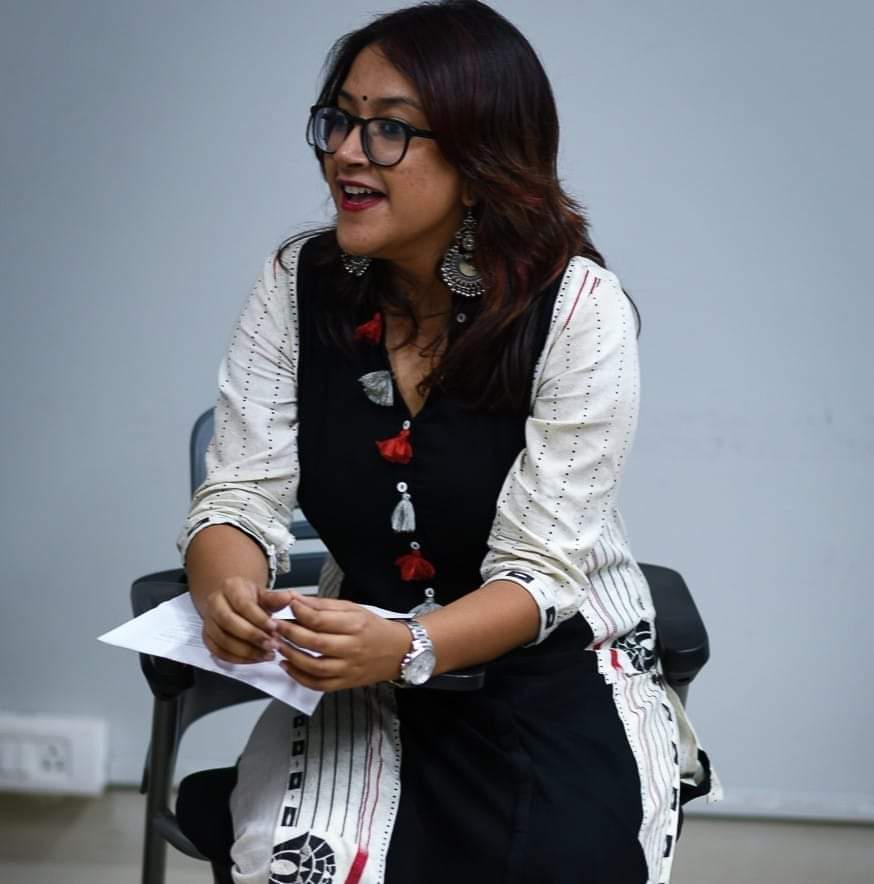
Hamsadhwani Alagarsamy: What are the projects you’re working on presently, and what kinds of projects would you like to work on in the future?
Sulagna Chatterjee: I am currently working on the post-production of a short film that I directed in the lockdown. That was my directorial debut and was a nerve-wracking and overwhelming experience at that! Other than that, I’m currently working on another project that’s really, really close to my heart but I can’t give too many details about it at this current time. I’m also in the midst of finishing the first draft of a feature film, which I hope will have some takers.
In the future, I really hope to create something that normalises conversations around mental health because we definitely need that in our country at this point.
Also read: In Conversation With Durga Gawde: An Artist, Activist And Drag King
But the biggest project I’d like to work upon is myself – I want to keep educating myself, keep learning, keep unlearning, keep growing and keep being kind to myself for doing the best I can, because it’s a scary, scary world out there.
About the author(s)
Hamsadhwani is a law student and anti-caste socialist feminist. Abolish the conditions that produce the prison.
